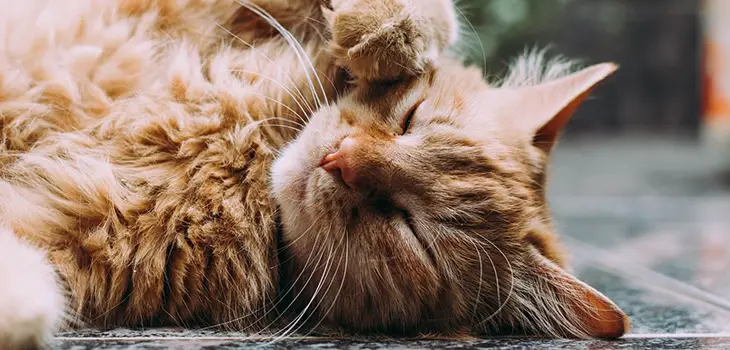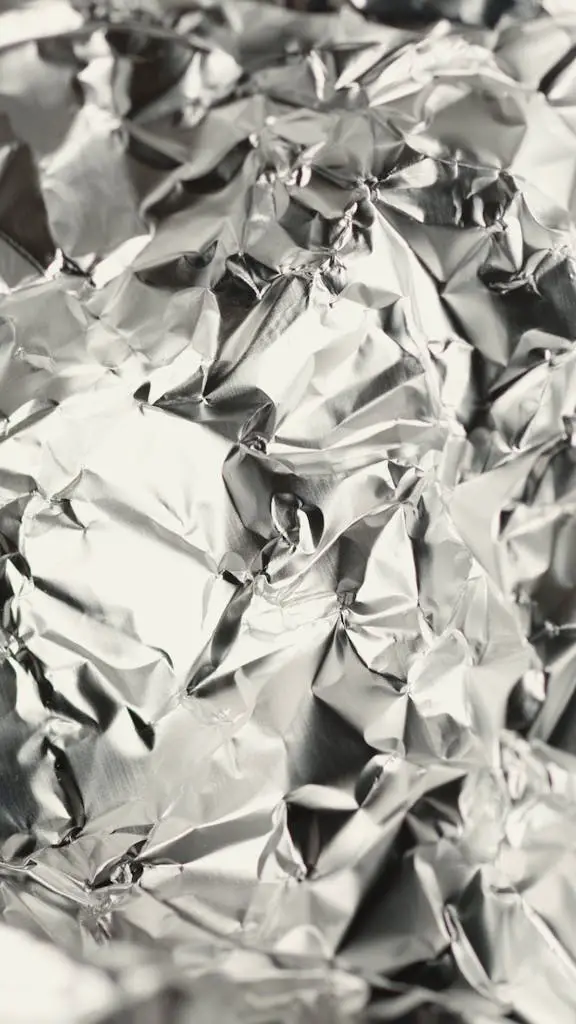When Your Cat Ate Aluminum Foil: What You Need to Know
Discover what actions to take if your cat ate aluminum foil and learn about potential risks and precautions.
Cats are curious creatures so ingestion of aluminum foil is possible. In most cases, cats can pass the aluminum they eat naturally. However, there are instances when the kitty may experience complications.

Understanding the Dangers of Aluminum Foil for Cats
Aluminum foil may seem harmless, but it can pose serious risks to cats if ingested. When a cat swallows aluminum foil, it can cause blockages in their digestive system. These blockages can be life-threatening and may require immediate medical intervention. The sharp edges of the foil can also cause tears or cuts in the cat’s intestines, leading to further complications. It’s important to be aware of the dangers and take steps to prevent your cat from accessing aluminum foil.
Additionally, aluminum foil may contain traces of harmful substances, such as chemicals used in the manufacturing process. Ingesting these substances can be toxic to cats and can result in symptoms such as vomiting, diarrhea, and abdominal pain. It’s crucial to keep aluminum foil out of your cat’s reach to avoid any potential ingestion.
Why my cat ate aluminum foil
Cats don’t normally go for aluminum foil but may ingest some if it has food on it, especially if the wrapped food has a strong scent and flavor your cats like. It’s also possible that your cat swallowed aluminum foil during playtime. Cats often mouth their toys, and if you give a tin foil as a plaything, don’t be shocked if your kitty tries to eat it.
If your cat seems to be obsessed with eating tin foil, you should get it checked for pica. This is a condition wherein a person or animal consumes inedible items excessively. Take note that this condition can be life-threatening as the ingested items can be toxic or obstructive.
What to do if your cat ate aluminum foil
If your cat ate aluminum foil, it’s essential to recognize the signs and symptoms to ensure prompt action. Some common signs of aluminum foil ingestion in cats include vomiting, gagging, loss of appetite, abdominal discomfort, and lethargy. You may also notice changes in your cat’s litter box habits or the presence of undigested foil in their feces.
If you suspect your cat has eaten aluminum foil, it’s crucial to monitor their behavior closely and seek veterinary assistance following these steps:
1. Observe your cat
Ingestion of aluminum foil isn’t always an emergency for cats but if your cat starts to drool, vomit, have diarrhea, and breathe heavily, you must rush it to the vet. These are signs of intestinal blockage, which could happen if the aluminum foil is ingested in large amounts.
Aside from that, the aluminum foil’s edges can scratch your cat’s throat or digestive tract. This can lead to internal bleeding and punctures requiring immediate veterinary care.
If your kitty only ingested a tiny bit of foil, it’s usually not a cause for concern. Most cats will pass little bits of aluminum through their stool without medical intervention.
2. Check what else was ingested with the foil.
Make sure you check what else your cat ate along with the aluminum foil. For example, if your cat ate garlic or onion wrapped in aluminum foil, the ingestion of garlic is enough reason for an emergency vet call. It’s because garlic and onion are highly toxic to pets like cats and dogs. Any food ingested that is toxic should be monitored and treated quickly.
3. Contacting Your Veterinarian for Guidance
If your cat ate aluminum foil, it’s important to contact your veterinarian for guidance. They will be able to provide specific advice based on your cat’s individual situation. Your veterinarian may recommend bringing your cat in for an examination or provide instructions for monitoring their condition at home. They may also advise you on whether any additional steps, such as X-rays or surgery, are necessary. It’s crucial to follow your veterinarian’s guidance to ensure the best outcome for your cat’s health.
4, Don’t force your cat to vomit.
If your cat ate aluminum foil, don’t mistake of inducing vomiting. This can become life-threatening under specific circumstances with aluminum foil.
For example, if your cat eats large amounts of aluminum foil, the material will form a lump inside its tummy. In this situation, forcing your cat to vomit can lead to choking, breathing obstruction, and even death. It’s always best to call a veterinarian if your cat consumes a substantial amount of tin foil wraps.
Frequently Asked Questions
Does aluminum foil bother cats?
Aluminum is often used as a cat deterrent because felines dislike its texture and sound. Tin foils make a high-pitched crinkling noise, which annoys a cat’s strong sense of hearing.
As much as aluminum foils are effective deterrents, cat owners should be careful when using them. There’s a risk of cats ingesting the foil and experiencing intestinal blockages.
What happens if my cat eats metal?
Metals have sharp edges, which can cause an intestinal puncture. And since metals are stiff and can form a lump inside the cat’s tummy, it can also become a blockage. The upside is that metal objects show up clearly on X-rays. This allows veterinarians to see the location of the foreign object and how it can be extracted safely.
In terms of risks, most cats can pass tiny metal items like a little piece of tin foil or a tiny toy screw. But if your kitty starts exhibiting unusual symptoms after the ingestion, you should contact a veterinarian quickly.
Why do cats freak out on aluminum foil?
Cats freak out when stepping on aluminum foil because of three things: texture, sound, and appearance. For cats, tin foils are shape-shifting, reflective, unknown objects.
A 2015 study suggested that high-pitched sounds like those of tin foils can cause seizures in felines. The syndrome is called feline audiogenic reflex seizures (FARS). The study indicated that the crinkling sound of aluminum foil is the most common trigger for FARS. It’s best to use other safer deterrents for cats.
Conclusion
Aluminum foil is not toxic to cats, but you are right to worry if your cat ate aluminum foil. The tin foil material can still cause injuries even though it’s softer than other metal objects. If your cat suffers from adverse reactions after eating tin foils, you must contact the vet immediately. Your pet needs urgent veterinary attention to prevent life-threatening consequences.
Overall, the best remedy here is to keep aluminum foil away from your pets. If you’re wrapping food with it, make sure that your curious kitty cannot access it.

